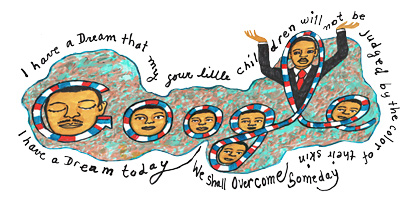 I’m currently working with an intelligent and courageous core team working to implement a very different way of working in a very large bureaucracy. It is really HARD work, but these three people are showing energy, resilience and graceful humor. As I read this article on Forbes tonight, Teaching Empathy: The Ancient Way Is Now Cutting-Edge it struck me that the four things they suggest we teach for empathy also represent network leadership.
I’m currently working with an intelligent and courageous core team working to implement a very different way of working in a very large bureaucracy. It is really HARD work, but these three people are showing energy, resilience and graceful humor. As I read this article on Forbes tonight, Teaching Empathy: The Ancient Way Is Now Cutting-Edge it struck me that the four things they suggest we teach for empathy also represent network leadership.
- Teach listening as a core skill and expect it as a cultural practice. Start by being an active listener yourself and give people the time they need to reflect. Time not made for someone is time wasted.
- Make dialogue a primary team, group or classroom practice. Dialogue opens the doors to exploration—what Peter Senge in his guide “The Fifth Discipline Fieldbook” calls “skillful discussion,” where thoughtful decisions can be made that honor all participants (or, in business, stakeholders).
- Identify roles, not organizational charts. When people are able to articulate their role, what they need to be successful and what gets in the way of their success, an empathic understanding is present and the beginnings of a healthy team, class or group takes shape.
- Lead with consistency, authenticity and honesty. Be clear as to why you are doing what you are doing. Do not lead or manage through personality but rather through articulation. To articulate is to clarify.
By networked leadership, I mean leading where you don’t always have authority. Where multiple reporting lines mess all the normal power plays up, rendering the old style of leading obsolete.
I see this team doing more and more active listening and they have refined their conversational skills to demonstrate both listening and bridge potential understanding gaps using the “what I heard you say is… ” before they add their thoughts. In an organization with a practice of “I win if I look smartest,” a lot of people’s attention is wrapped up in preparing their next statement, not listening.
In the formation of this big new plans, emphasis is placed not on large, plenary sessions to hash things out, but breaking into small conversations and building meaning outward. There is a strong invitation for others to describe what they understand and need about this big transition they are all navigating.
The new structure now distributes resources across divisional lines, so the idea of one’s formal boss is being tossed on the waves of change. The idea of roles, not organizational charts is one I want to bring up at our next meeting as a way to help with this.
Finally, this team is composed of a very senior leader, a senior researcher and a more junior staff member. I see them leading with honesty, authenticity and striving so hard for consistency. What I hope I will see soon is more and more people around them recognizing and appreciating this, so it will encourage more of the same. I think it is possible. Hard work, but possible. And when it becomes more common, I suspect I’ll see both better results, and more joy.
I think these are four terrific things. What else do courageous, networked leaders need to know and do?
Edited PS: see also Eugene Eric Kim’s post on Balance Bikes for Changemakers. It’s all about the learning/experimenting!
 A while back someone wanted a copy of a recipe from me. I wanted to find (re-find!) a recipe. And I decided to create a little email group where I could email myself recipes, and then easily find them later. I shared with my sister and mom. A few others joined when they heard, but it has stayed a fairly small circle.
A while back someone wanted a copy of a recipe from me. I wanted to find (re-find!) a recipe. And I decided to create a little email group where I could email myself recipes, and then easily find them later. I shared with my sister and mom. A few others joined when they heard, but it has stayed a fairly small circle.



